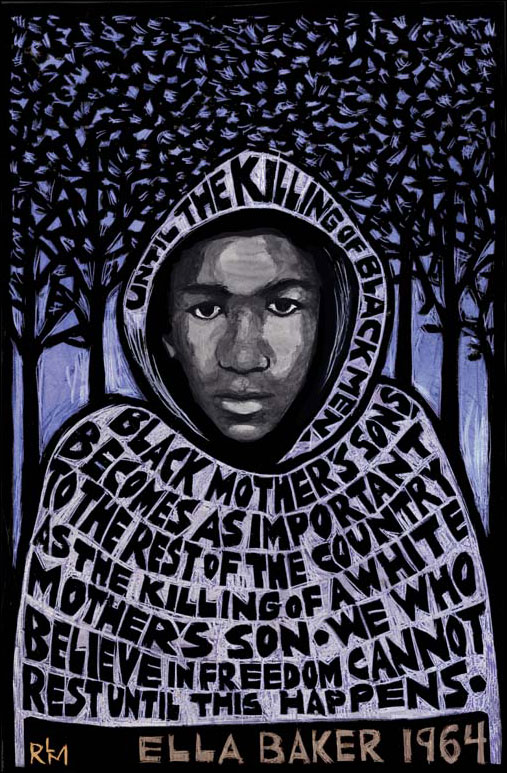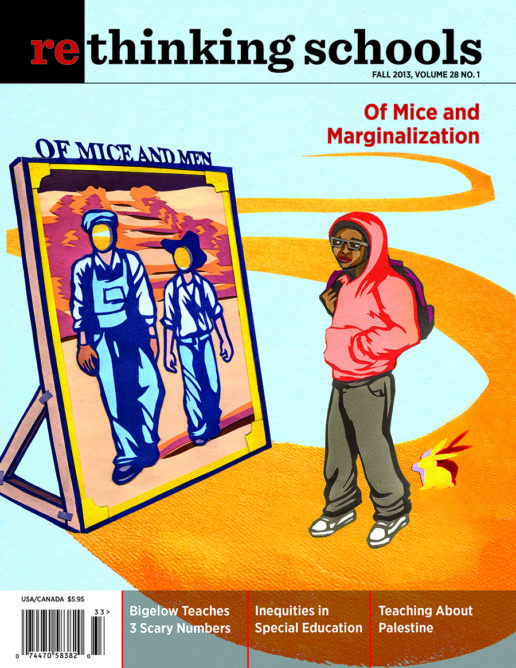Justice for Trayvon Martin
Illustrator: Ricardo Levins Morales

We return to school this fall under the cloud of the acquittal of George Zimmerman for the murder of Trayvon Martin. Many students in our classes are wondering “Am I next?” and all of them – all of us – need to grapple with what this means about our country, and what we can do about it.
African American scholar/activist Cornel West calls Zimmerman’s acquittal “a Dred Scott moment – a clear statement that there is no respect for black life.” It marks a point in time when the systemic and historical nature of U.S. racism is starkly revealed.
It’s natural to focus on Zimmerman’s psychology, and on the racism of the Seminole County police and jury. Even more guilty are the National Rifle Association (NRA) and the American Legislative Exchange Council (ALEC), which have succeeded in pushing and buying “stand your ground” laws, the legal basis for Zimmerman’s defense, in 22 states and counting.
But the antecedents to stand your ground laws have a long history in armed vigilantes enforcing white supremacy in the United States – from Daniel Boone to the KKK to the Zoot Suit Riots. According to journalist Thom Hartmann, “the real reason the Second Amendment was ratified, and why it says state instead of country, was to preserve the slave patrol militias in the Southern states.”
But the heartening aspect of this Dred Scott moment is the extent to which it has evoked a national level of rage and determination. It has so stripped clear the illusion of a post-racial, color-blind society, thousands of people have been moved to action. Rallies were held in more than 100 cities. A student-led group of activists, the Dream Defenders, occupied the offices of Florida Gov. Rick Scott for a month, demanding a special legislative session to overturn the state’s stand your ground law.
Outrage has also generated a wealth of cultural resistanceÑposters, poetry, music. As artist Ricardo Levins Morales told Truthout reporter Candice Bernd, “[The artist’s] role in moments like this is not just to capture the moment and express people’s feelings, but help to transform it from a moment that’s about expending energy to one that’s about accumulating power.”

